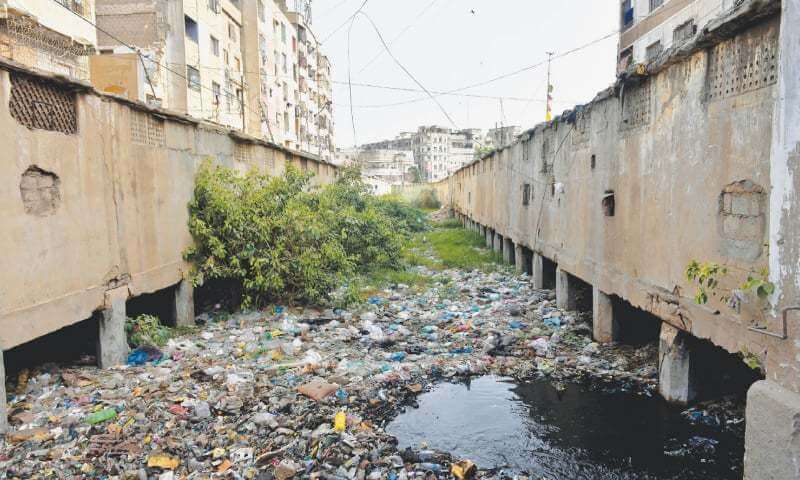My Waste, My Responsibility

By Haider Ali
There is no denying that solid waste management has become a daunting task across the world. In Pakistan, heaps of garbage have become part of landscape along the roads, railway tracks, inside drainage and waterways. The population explosion followed by inadequate management practices have left this issue unaddressed. The annual waste generation in Pakistan has crossed 48 million tons per annum, increasing over two percent every year. Karachi manifests the worst of this crisis with a lack of resources, capacity and political will all adding to the problem. The question emanates who is to blame for this imbroglio – government, private sector, experts or public? In reality, no one is free of blame and responsibility.
While it is easy to rest the responsibility solely to authorities, our academia and other experts in the field may play their role in educating the public on innovative ideas of producing compost from organic waste or energy from rest of the waste. This is successfully being implemented in many countries. However, we may need to adapt solutions according to local needs as the composition of waste generated in Pakistan may be different compared to other countries. To get desired results, there is a need to raise awareness on how waste can be segregated into groups at household and workplace level. Firstly, different color bins can be placed in offices and commercial areas by mentioning category of waste – organic (food waste), inorganic (recyclable and non-recyclable). At the second stage, residential areas can be targeted. This can potentially generate revenue from organic waste in the form of fertilizer and rest may be sold as recyclables. However, the role of informal garbage pickers should not be ignored as it is a source of livelihood for them. Government along with concerned stakeholders must devise a mechanism to include them in a formal set up and provide them incentives such as personal protective equipment and basic aid to ensure their safety and wellbeing while contributing to waste disposal. Additionally, the authorities may impose fines on littering in public places to penalize and discourage irresponsible behavior.
There is no better time to inculcate responsible habits than in early years of schooling. Students and young minds are potentially the most promising agents of change in the society. The educational institutes may be encouraged to update the syllabus at every level to sensitize and educate young and upcoming generation. Relevant courses need to be offered at universities with help from experts from in the field to share solution based ideas based on local and international experience and research. The link between educational and research institutes need to be established to collaborate on solutions for dealing with waste disposal. This would help fill the gap between market and institutions.
In a similar vein, Masjid (mosque) and other places of worship are established platforms to reach out to masses and sensitize them to harness fruitful results. Friday prayer and other weekly sermons can potentially be an effective medium for advocating civic responsibilities in public. It can provide a platform across the socio-economic backgrounds to reiterating the lost message that “Cleanliness is half the faith’. The authorities may disseminate literature in easily understandable national and local languages on how the message can be propagated and practiced in our daily lives. For instance, during festive events like Eid-ul-Azha, our masjids can play better role on reminding citizens of their responsibilities to dispose carcasses in a safe manner.
However, at the government level, significant additional resources and manpower is required for primary and secondary collection of waste. One way to mitigate this problem is to provide incentives to the public to participant at various levels. Secondary collection points can be established at proposed locations where waste can be collected through machinery and reward must be there with respect to weight and appropriate segregation of solid waste. This will save the primary collection cost and time. Pilot projects to initiate this may include low income areas first, as they are more likely to respond to incremental source of additional income.
It may take changing of habits and practices of waste disposal but if done right can help change in culture related to civic responsibility for waste disposal in the country. Adequate waste management practices reap multiples benefits by protecting environment and reducing incidence of disease. Rather than only considering waste disposal to be the responsibility of the authorities, it is our responsibility too at individual and collective level to dispose waste effectively and play a part in keeping our surroundings clean. The slogan ‘My waste, my responsibility’ needs to be raised and adopted at every level.
Haider Ali is a young professional working as a Health Safety & Environment Officer in Shaukat Khanum Memorial Cancer Hospital and Research Centre (SKMCH & RC), holds a degree in MPhil Environmental Science from Government College University, Lahore. He can be reached at haider-92@live.com





1 Comment
I agree with the idea and also suggest development authorities or municipal administration or waste management companies in case of large cities should introduce commercial fee in all commercial areas of cities like shopping malls, food streets, markets and bazars.